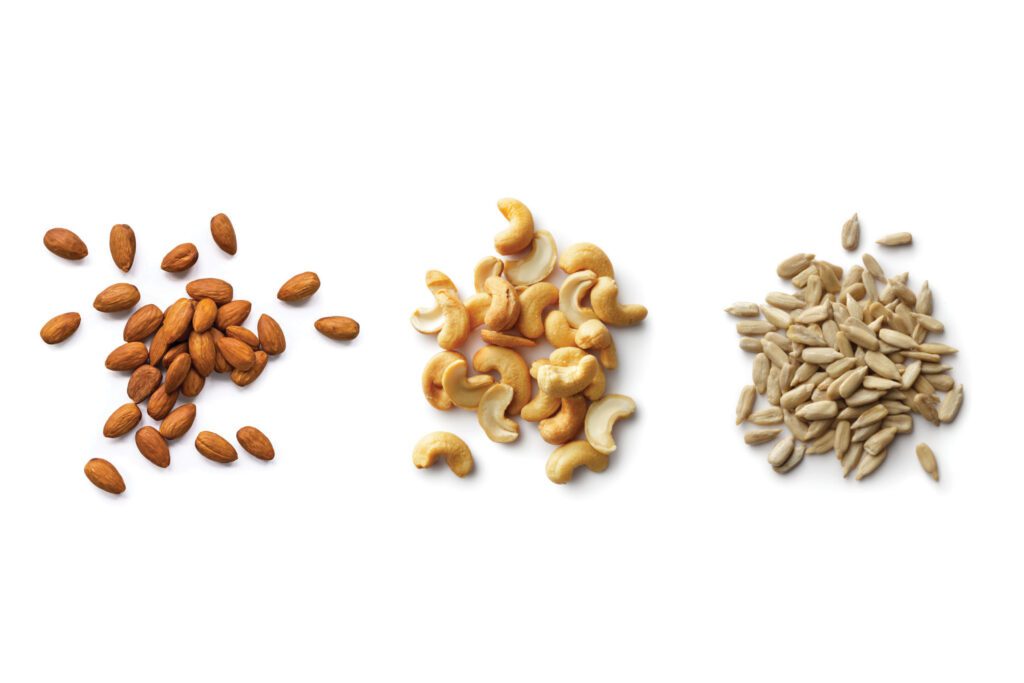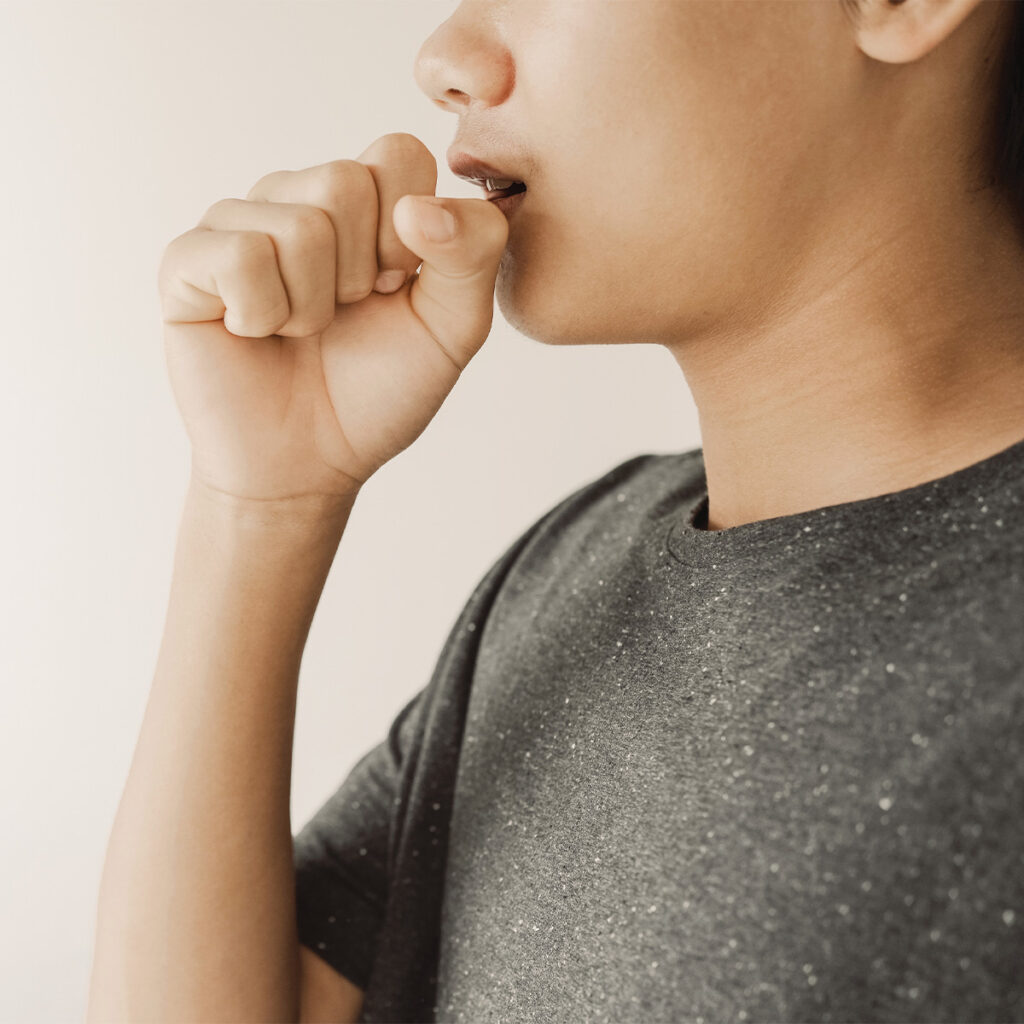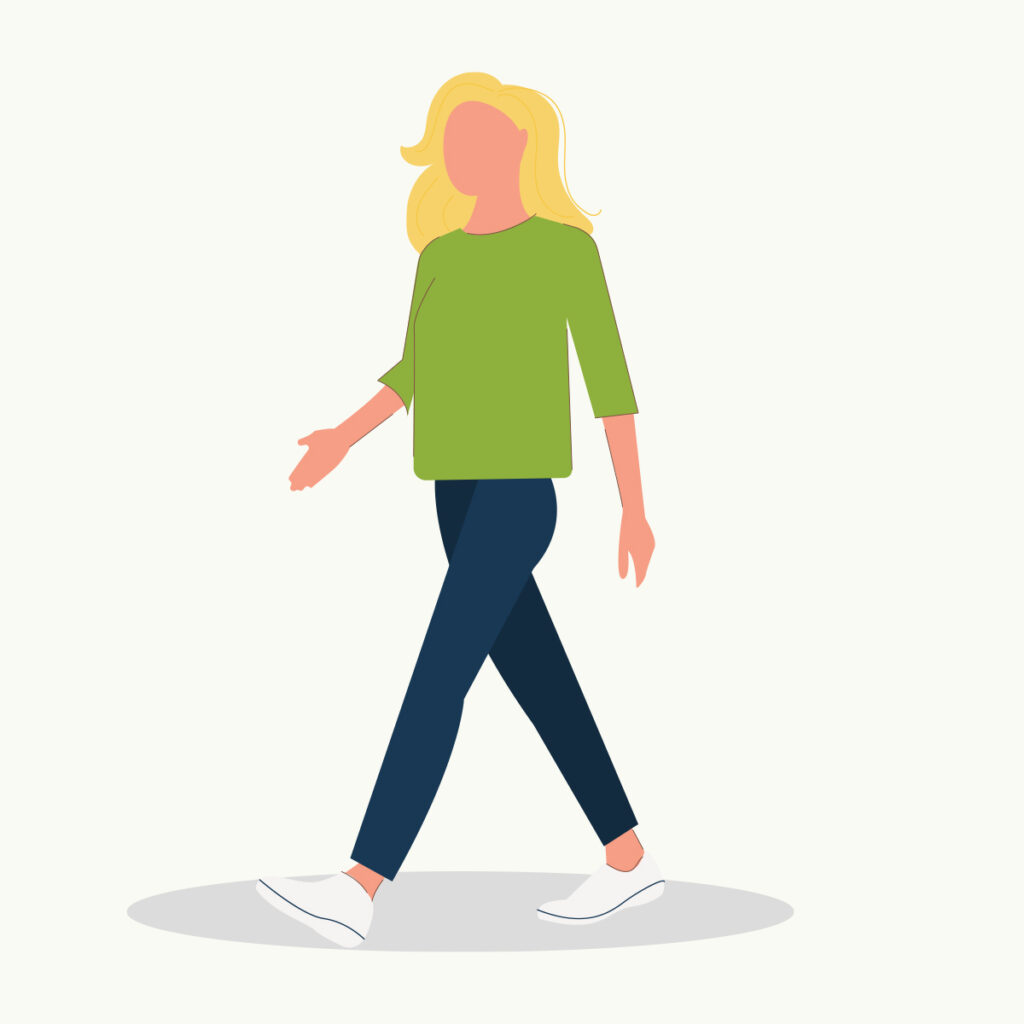For Her
5 Tips for Winter Wellness
1. Turn your living room into a gym.
Too cold to brave the outdoors? Maintain your weekly exercise regimen without ever leaving your living room! Clear a space for moves like jumping jacks and jogging in place and let your furniture double as fitness equipment: The couch is perfect for crunches, triceps dips, and side planks.
2. Rock the garlic breath.
Said to fight colds and the flu, garlic contains allicin, a compound that boosts the immune system. Consuming raw garlic has the most benefits, so try mincing a few cloves into your favorite dips or dressings.

3. Host a game night.
Beat the winter blues by spending time with family and friends. Staying connected, especially after the New Year, can combat feelings of loneliness and gloom.
4. Change your toothbrush.
While you should be replacing your toothbrush every three months anyway, it’s smart to have some extras tucked away for the winter. Use a new toothbrush after every cold, flu, or sore throat – otherwise, your germy brush could lead to reinfection.
5. Give back.
Whether packing boxes at a food bank or assisting your local animal shelter, volunteering your time to help those in need can positively impact your own mental health. Get the kids involved to encourage altruism and further spread holiday cheer!
Signs You’re Having a Panic Attack
Chances are, you’re not having a heart attack – but it sure feels like it. The pain comes on suddenly, out of nowhere, for no obvious reason. You’re disoriented; your heart races. It’s scary and unpredictable. It’s a panic attack.
And those are just the physical symptoms – they’re often accompanied by intense fear or feeling like you’re dying or losing your mind. Panic attacks typically last anywhere from five to 10 minutes, and they can be triggered by a number of things: chemical imbalances, lack of sleep, caffeine or drugs, and – very often – stress.
Recommended methods of handling a panic attack range from deep breathing and meditation to distraction and exercise. However, if you’re experiencing recurring attacks, professional help may be the answer. Cognitive behavior therapy is a treatment that can help you face your feelings and fears, ultimately breaking the cycle of panic.
Common signs of a panic (or anxiety) attack include:
- Sweating
- Shortness of breath
- Chest pain
- Dizziness
- Nausea
- Trembling
- Heart palpitations
For New Moms
Tackling the Third Trimester
Your third trimester doesn’t earn you a free pass from the gym! Not only can regular exercise improve your sleep and mood, it also prepares your body for the physical and mental challenges of labor. Here are a few of the best workouts for the home stretch (and a few to avoid).
Walking.
By far the most popular pregnancy workout, walking is a tried-and-true method to get your blood pumping. If walking for 30 minutes or more seems like a chore, try breaking up your walk into 10 to 15-minute increments throughout the day.
Swimming.
Whether swimming laps or trying out water aerobics, time spent in the pool is a safe – and comfortable – way to stay active. The water takes stress off your joints and relieves swelling common in the final weeks of pregnancy.
Bodyweight exercises.
While cardio is important, it’s also beneficial to maintain your strength! Squats, wall push-ups, lunges, and leg lifts will work your muscles without putting your baby at risk.

What to Avoid:
- Jumping, bouncing, leaping, or anything that may cause you to lose balance
- Lifting heavy weights (use light dumbbells instead)
- Contact sports like soccer and basketball
Preventing Ear Infections
The stats aren’t great: Approximately 75% of children will develop an ear infection before their third birthday. Although sometimes unavoidable, you can lower your baby’s chances of infection by adhering to a few simple rules!
1. Wash your (and your baby’s) hands.
Ear infections may not be contagious, but the respiratory infections that can cause them are. Washing your hands often, but especially after handling waste, is the best way to reduce the spread of germs.
2. Breastfeed if possible.
Experts recommend breastfeeding for six to 12 months to decrease your child’s chances of ear infection. If you’re bottle feeding, make sure to keep your baby in an upright, sitting position – when they lie down, they’re more likely to develop an infection.
3. Get plenty of fresh air.
In addition to other forms of air pollution, tobacco smoke can increase the risk for severe and frequent ear infections. Smoke-free households are crucial to avoiding infection and other hearing problems.
4. Stay up-to-date on vaccinations.
Talk to your child’s doctor about staying current on necessary vaccinations. These include the flu shot (for babies 6 months and older) and pneumococcal vaccines.
For Moms
The Better Butter
The stats aren’t great: Approximately 75% of children will develop an ear infection before their third birthday. Although sometimes unavoidable, you can lower your baby’s chances of infection by adhering to a few simple rules!
1. Wash your (and your baby’s) hands.
Ear infections may not be contagious, but the respiratory infections that can cause them are. Washing your hands often, but especially after handling waste, is the best way to reduce the spread of germs.
2. Breastfeed if possible.
Experts recommend breastfeeding for six to 12 months to decrease your child’s chances of ear infection. If you’re bottle feeding, make sure to keep your baby in an upright, sitting position – when they lie down, they’re more likely to develop an infection.

3. Get plenty of fresh air.
In addition to other forms of air pollution, tobacco smoke can increase the risk for severe and frequent ear infections. Smoke-free households are crucial to avoiding infection and other hearing problems.
4. Stay up-to-date on vaccinations.
Talk to your child’s doctor about staying current on necessary vaccinations. These include the flu shot (for babies 6 months and older) and pneumococcal vaccines.
Car Seat Guidelines You Should Know
If you’ve ever felt overwhelmed choosing a car seat for your child, you’re not alone! Fortunately, the American Academy of Pediatrics (AAP) recently updated their recommendations concerning car safety for children up to 13 years. Here’s a quick recap of what you need to know:
Infants & Toddlers:
This age group should remain in a rear-facing car safety seat for as long as possible. Considerations like weight and height are more important than the child’s age – which means a 3 or 4-year-old could still ride rear-facing until they outgrow the seat.
Toddlers & Preschoolers:
Forward-facing car seats with a harness are the next step up. Again, children should ride in a forward-facing car seat for as long as possible, or up to the highest height and weight recommended by the seat’s manufacturer.
School-aged children:
Once they’ve outgrown the forward-facing seat, children should transition to a belt-positioning booster seat. The lap belt should lie across the child’s upper thighs, while the shoulder belt should be snug across the child’s chest (not their neck).
Older children:
This age group can ride unassisted when the vehicle’s seat belt fits correctly. All children 13 and under should ride in the back of the vehicle.
For Him
Eat, Drink, and Be Satisfied
The holidays are synonymous with mouth-watering, belly-busting feasts. While it’s fun to indulge in your favorite seasonal snacks, overeating at your family get-together or office potluck can lead to discomfort – and a few extra pounds around your waistline. Here are a few tips to see you through the tastiest time of the year:
Don’t show up hungry.
It may be tempting to “save your calories” for that big meal, but studies show that an empty stomach will cause you to overcompensate. Try eating a healthy snack or a light breakfast or lunch before the event to set yourself up for success.
Make a plan.
Be strategic about your indulgences. If you’ve been looking forward to your mom’s pecan pie and candied yams all year long, then have some – but skip the store-bought cookies or that second helping of stuffing.

Eat slowly.
Remember, it takes 20 minutes for your brain to register fullness. Pause between bites, put your fork down often, and chat with the people at your table. Bonus: You’re more likely to enjoy your holiday meal!
Hydrate.
Dehydration can be easily mistaken for hunger, so sipping water throughout the day can keep you from eating when you actually need a drink. You can also pack in some water-rich foods like spinach, cucumber, and melons in between trips to the buffet table.
From Frostnip to Frostbite
Frigid temperatures can take a toll on the body. Familiarize yourself with the warning signs of frostbite here:
Frostnip
The earliest stage of frostbite, frostnip causes your skin to turn red and numb. To treat frostnip, seek shelter and remove any wet clothes. Soak the affected areas in warm – not hot – water. Frostnip will not cause permanent damage to the skin.
Superficial Frostbite
Superficial frostbite affects the top layers of your skin. At this stage, your skin will start to feel frozen and hard. Head indoors immediately – if sensation to the affected area does not return, go to the emergency room. A fluid-filled blister may develop once the site has been treated.
Severe Frostbite
Severe, or deep, frostbite requires medical attention. Your skin will begin to turn blue, white, or blotchy; you may experience numbness, and your muscles may not work properly. Severe frostbite may cause the tissue to die, and the most critical cases can even result in amputation.
If you’re planning to be exposed to extreme temperatures, wear appropriate clothing to protect your skin. A hat, insulated gloves, two pairs of wool socks, and waterproof footwear are recommended.
For the Whole Family
Aluminum Foil: Friend or Foe?
The Claim:
Cooking with aluminum foil – a product found in most American kitchens – can cause aluminum to seep into your food, resulting in Alzheimer’s disease and posing other health risks.
The Facts:
First, aluminum is everywhere. Our dairy products, baking powder, deodorant, and even our drinking water contain traces of aluminum. Fortunately, the human body is very efficient at excreting this foreign, yet naturally occurring, substance, as the body has no need for it; thus, overexposure is not a major concern for the average person.

Further, there is no conclusive evidence that links aluminum exposure to the development of Alzheimer’s disease.
The Claim:
Cooking with aluminum foil – a product found in most American kitchens – can cause aluminum to seep into your food, resulting in Alzheimer’s disease and posing other health risks.
The Facts:
First, aluminum is everywhere. Our dairy products, baking powder, deodorant, and even our drinking water contain traces of aluminum. Fortunately, the human body is very efficient at excreting this foreign, yet naturally occurring, substance, as the body has no need for it; thus, overexposure is not a major concern for the average person. Further, there is no conclusive evidence that links aluminum exposure to the development of Alzheimer’s disease.
However, cooking with foil does cause aluminum to leach into your food – especially if you’re cooking at a high temperature or cooking with acidic foods, such as tomatoes or lemons. Salt and certain spices can also perpetuate extra leaching. While the permeation is minimal, anyone concerned about their aluminum intake can follow these guidelines:
- Avoid high-heat cooking when using aluminum foil.
- As an alternative, bake with glassware or porcelain.
- Reserve aluminum foil for food storage.
Staying Safe
Popular pastime turned daily necessity,
social media has become deeply embedded into our culture. And while popular networking sites like Facebook and Instagram are a great way to stay connected and share important life events, these platforms could also spell trouble for the uninformed user. Here, we’re sharing a few key reminders to keep you, and your identity, safe.
Develop secure passwords.
The more complicated the password, the more effective it is at protecting your identity. It’s also best to use unique passwords for different social accounts.
Be selective with your friends and followers.
If you’ve never met that person who sent you a friend request, then don’t accept it. Befriending a stranger means that virtually anyone could monitor your activities and take your information.
Check your privacy settings.
Maintain strict privacy settings so that family and friends alone can view your information.
Avoid sharing personal details.
Information such as your phone number, address, and birthdate should stay off social media.
Don’t post your location.
Sharing your specific location (whether at your local gym or at Disney World) might seem like a harmless update, but you’re actually putting yourself and your home at risk – especially if your account is public.
For Older Adults
Making the Most of Your Next Doctor’s Visit
Have you ever felt uneasy at the end of a doctor’s appointment? Maybe you forgot to ask that one important question, or you didn’t fully understand the diagnosis? To ensure your next visit is a productive one, take a look at these four tips.
1. Do your homework. To receive the best possible care, compile your medical history, as well as the health histories of your closest family members, prior to your visit. You should also bring any current medications with you to the appointment.
2. List your symptoms. It’s helpful to prepare a symptom diary, where you record when the symptom started, how often it occurs, if there’s pain, etc.

Remember that honesty is the best policy – don’t hesitate to share your concerns despite any awkwardness you may be feeling.
3. Ask questions. Depending on the purpose of your visit, you may be able to anticipate certain diagnoses (and plan questions in advance). At the conclusion of the appointment, you should fully understand your diagnosis and any treatment options.
4. Document what you learn. Using a notepad or your mobile device, write down the answers to your questions. Ask your doctor for a recap, especially if you’re given instructions to follow between visits.
Identifying Insomnia
It’s not just a matter of counting sheep. Insomnia affects tens of millions in the United States, and older adults are more likely to experience this common sleep disorder than any other age population.
What is insomnia?
Insomnia is characterized by having difficulty falling and/or staying asleep. Chronic insomnia, which lasts for a month or longer, can be disruptive to your health and quality of life. A person suffering from insomnia may experience drowsiness, trouble concentrating, impaired memory, irritability, or depression.
What causes insomnia?
Causes of insomnia range from an inadequate sleep environment to the usage of specific medications. Additional causes include poor sleep hygiene, stress or anxiety, an irregular sleep schedule, and certain medical conditions.
How can you treat insomnia?
First, determine the underlying cause – this may involve a physical exam by your doctor or a sleep study. If a medication or health condition is triggering your insomnia, address that problem and see if the insomnia persists. You should also practice healthy sleeping habits, including:
- Maintain a regular sleep schedule.
- Sleep in a dark, quiet, comfortable space.
- Exercise daily, but not right before bed.
- Avoid caffeine, heavy meals, and naps before bedtime.
For the Home
Fend Off Flooding
The Federal Emergency Management Agency names flooding as the most common and costly disaster in the United States. Whether facing a flash flood or even heavy rainfall, take steps to protect your home and belongings before the skies open up.
First, research the flood risk in your area, and purchase flood insurance accordingly. Not all home insurance plans cover flooding, yet an inch of floodwater could lead to $25,000 in damage.
To minimize water damage from a flood, there’s plenty of prep work to do outside the home. Start by sealing any foundation cracks – use mortar and masonry caulk or hydraulic cement to fill the gaps completely and inexpensively. Next, inspect your landscaping: Confirm that your lot is properly graded, and clear debris from storm drains. Finally, clean out your gutters to prevent clogs.

One of the best defenses against flooding is a battery-powered sump pump. This device allows you to propel groundwater away from your home and prevent damage to your lower levels. Sandbags can also be a valuable tool to divert moving water; just be sure to set up the bags before flooding is anticipated. The most important thing you can do prior to a flood is be prepared!
Germ-Proofing Your Home: The Basics
Keeping your family illness-free through flu season is not an easy task. Start your battle with bacteria at home for a fighting chance.
Disinfect.
Cleaning highly trafficked areas of the home, especially hard surfaces, can help prevent the spread of germs. Typical hotspots include door knobs, home desks, handheld devices, and toilets. Also be sure to disinfect reusable cleaning products like rags and mops – otherwise, you’ll just be spreading bacteria around your home.
Wash.
Throw towels, rugs, and bed linens in the washer frequently during flu season. To effectively kill any germs, use hot water (at least 150 degrees) and dry on a hot setting for 45 minutes or longer.
Humidify.
Turning on the humidifier throughout the winter increases your home’s humidity levels and helps prevent the spread of viruses. That’s because a humidifier creates an inhospitable environment for germs. Remember to clean your unit regularly!




